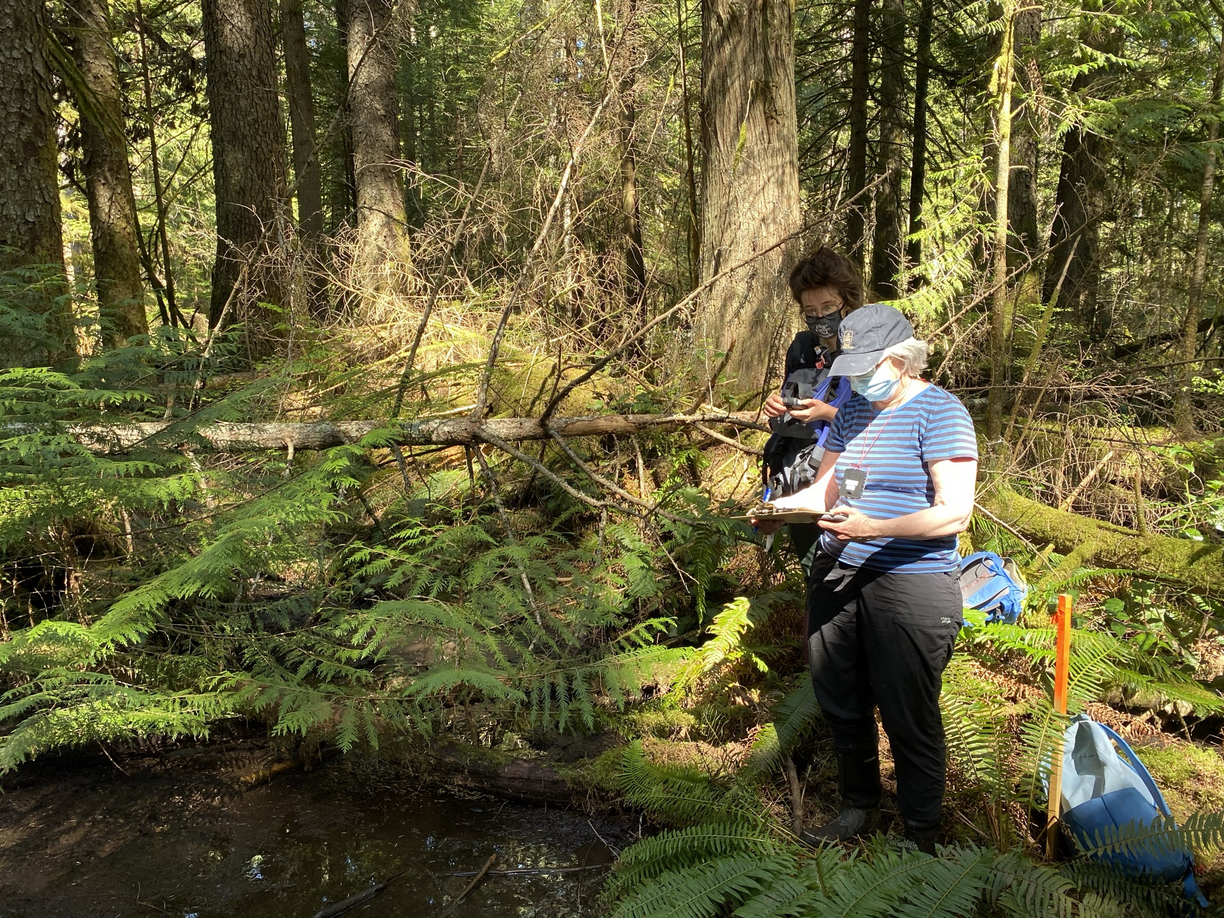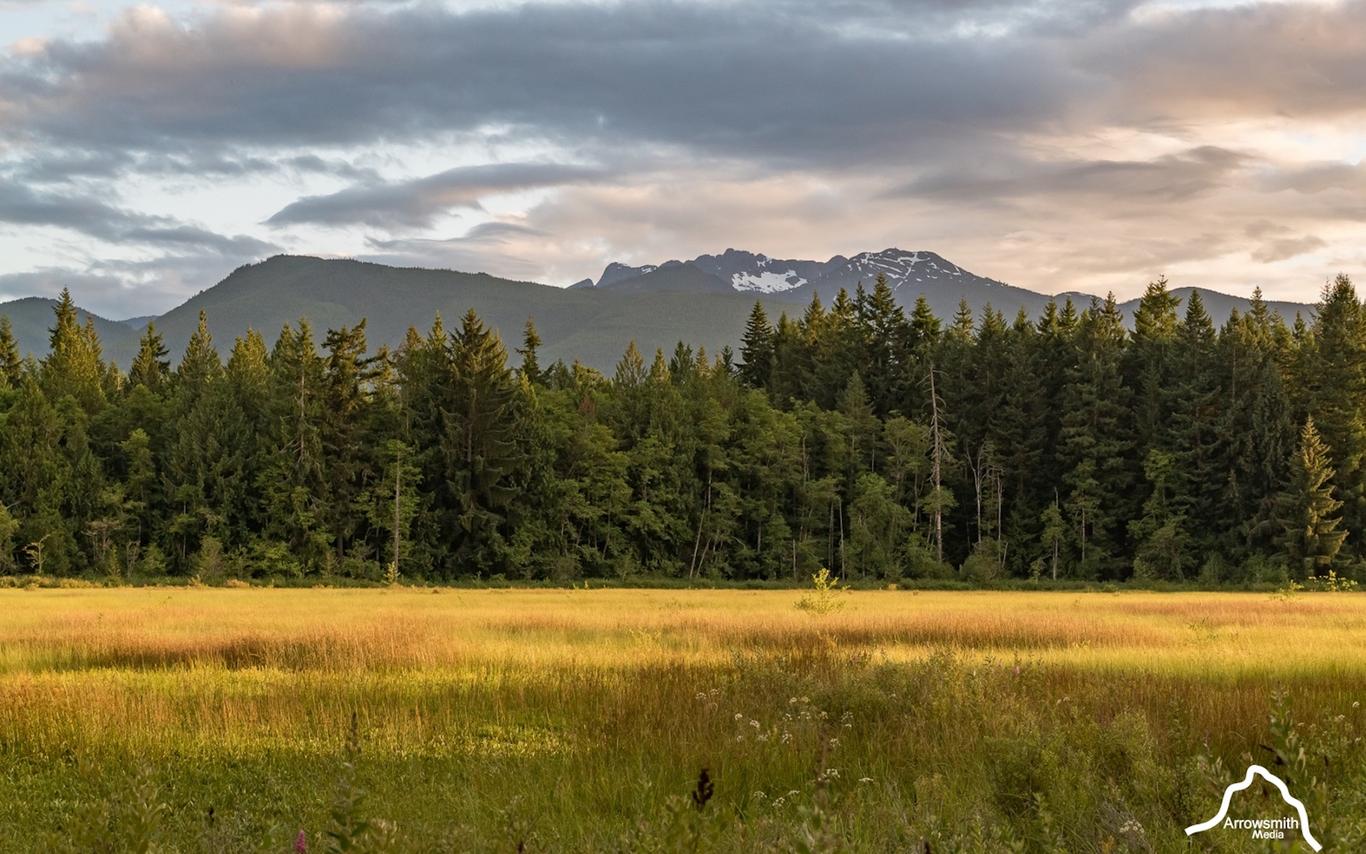MABRRI is always looking for students and community members to volunteer on projects and citizen science initiatives.
If you are interested in volunteering, please contact us at mabrri@viu.ca
RDN wetland mapping
This project is monitoring long-term changes in a selection of wetlands in the Regional District of Nanaimo, and MABRRI is looking for volunteers to help out in the field. There are six sites that are monitored seasonally (April, July, October, and January). All sites are located near Qualicum Beach, Deep Bay, and Cedar. The data collected will used to identify changes overtime, including the hydrology, water quality, and vegetation present in the wetland. The field team also uses photo point monitoring, which involves taking photos at the exact same location, facing the same direction, during each visit. These photos will document the seasonality these wetlands experience.
Marine debris surveying in the MABR
With the help of local volunteers, MABRRI launched the Marine Debris Survey Project in July 2021, and are now monitoring two survey sites in the MABR (one in French Creek and the other in Qualicum Beach). The project’s approach follows the National Oceanic and Atmospheric Administration’s (NOAA) methods for marine debris surveying, as part of their Marine Debris Monitoring and Assessment Project.
Through NOAA’s survey methods, MABRRI is providing data to an international database that amalgamates data collected from local beaches into a larger context. The goal of NOAA’s initiative is to utilize data collected from beaches around the world to develop more effective mitigation strategies to prevent the impacts of marine debris.
MABRRI will be conducting a debris survey four times per year, once each season (January, April, July, October). With additional volunteers, MABRRI hopes to expand the project to include more beaches in the region.
Plant phenology volunteer opportunities
The Coastal Plant Phenology Research and Monitoring Project is a collaboration between MABRRI, Milner Gardens & Woodland, and the Ministry of Forests, Lands, Natural Resource Operations and Rural Development. This project will help to understand if plant species and ecosystems within southeastern Vancouver Island are vulnerable to climate change by studying plant phenology (the timing of cyclic biological changes) in coastal native plant species. Understanding the timing of plant phenological events allows us to begin to understand how individual species and ecosystems are responding to climate change now and to evaluate potential shifts in their growth and development response to future climate projections.
At Milner Gardens & Woodland there are 3 sites where phenophase data is collected on 11 different native plant species. Some examples of phenophases recorded are bud break, leaf size, canopy coverage, flower development, and ripe or unripe fruit. Data collection occurs weekly during the growing season and monthly in the fall and winter when phenophase development progresses at a slower rate.
This project depends on our citizen scientists to help with data collection at Milner Gardens & Woodland throughout the growing season.
Forage fish volunteer opportunities
MABRRI is currently working with groups of citizen scientists from Cowichan Bay to Qualicum Beach, including groups on Gabriola Island, Thetis Island, Pender Islands, and Saturna Island, to identify when and where Pacific sand lance and surf smelt (forage fish) are spawning. These groups collect and process sediment samples from local beaches, which are ultimately looked at under a microscope to identify if there are any eggs present. By working with our citizen scientists, we can expand the project geographically, covering a much greater extent of the coastline in a shorter period. Ultimately, we are aiming to collect a long-term dataset for our stretch of the Vancouver Island coastline, as well as for the local islands. All data is submitted to the Pacific Salmon Foundation’s Strait of Georgia Data Centre; therefore, it is openly available to anyone that is interested in looking at it.

